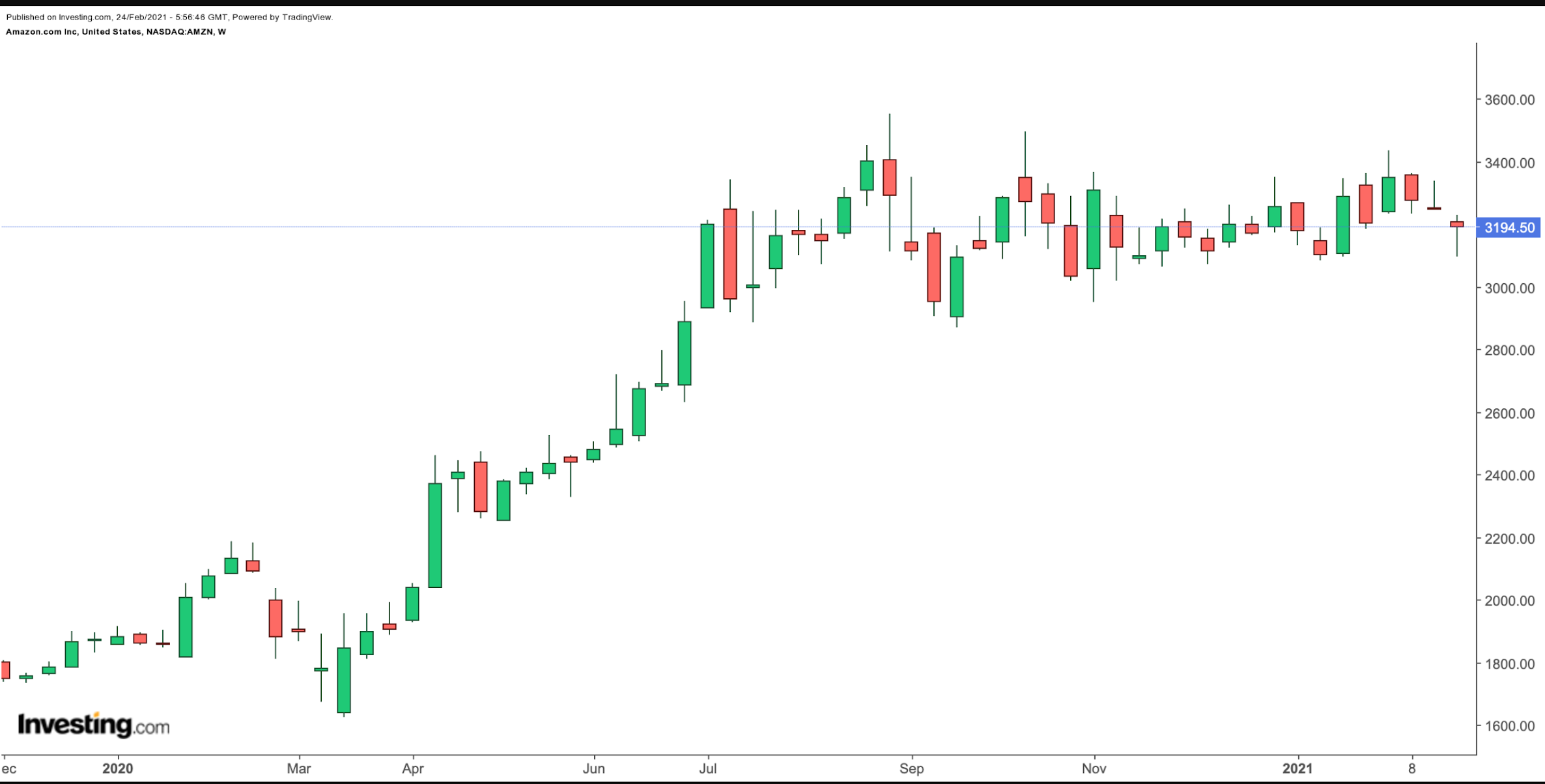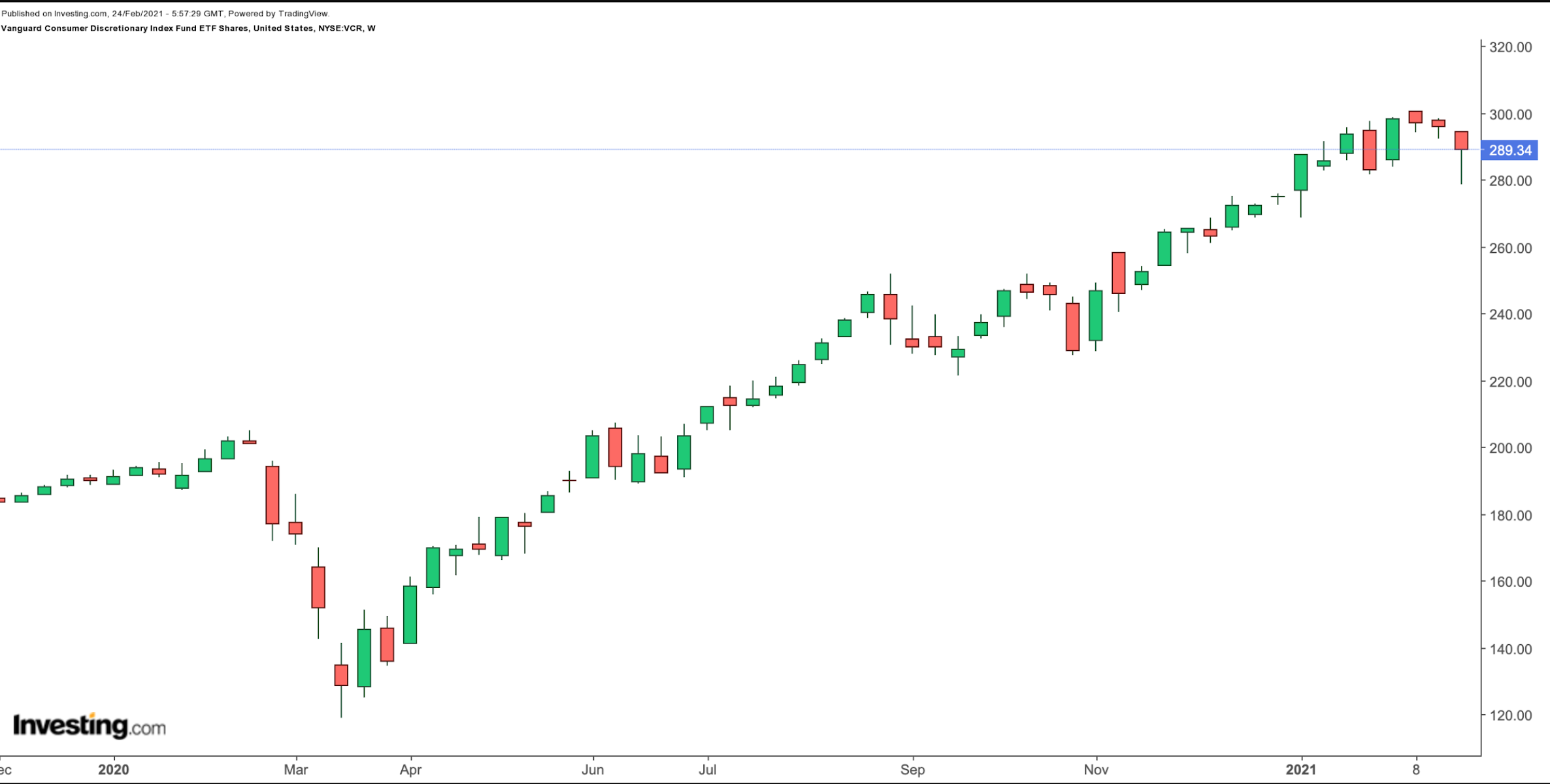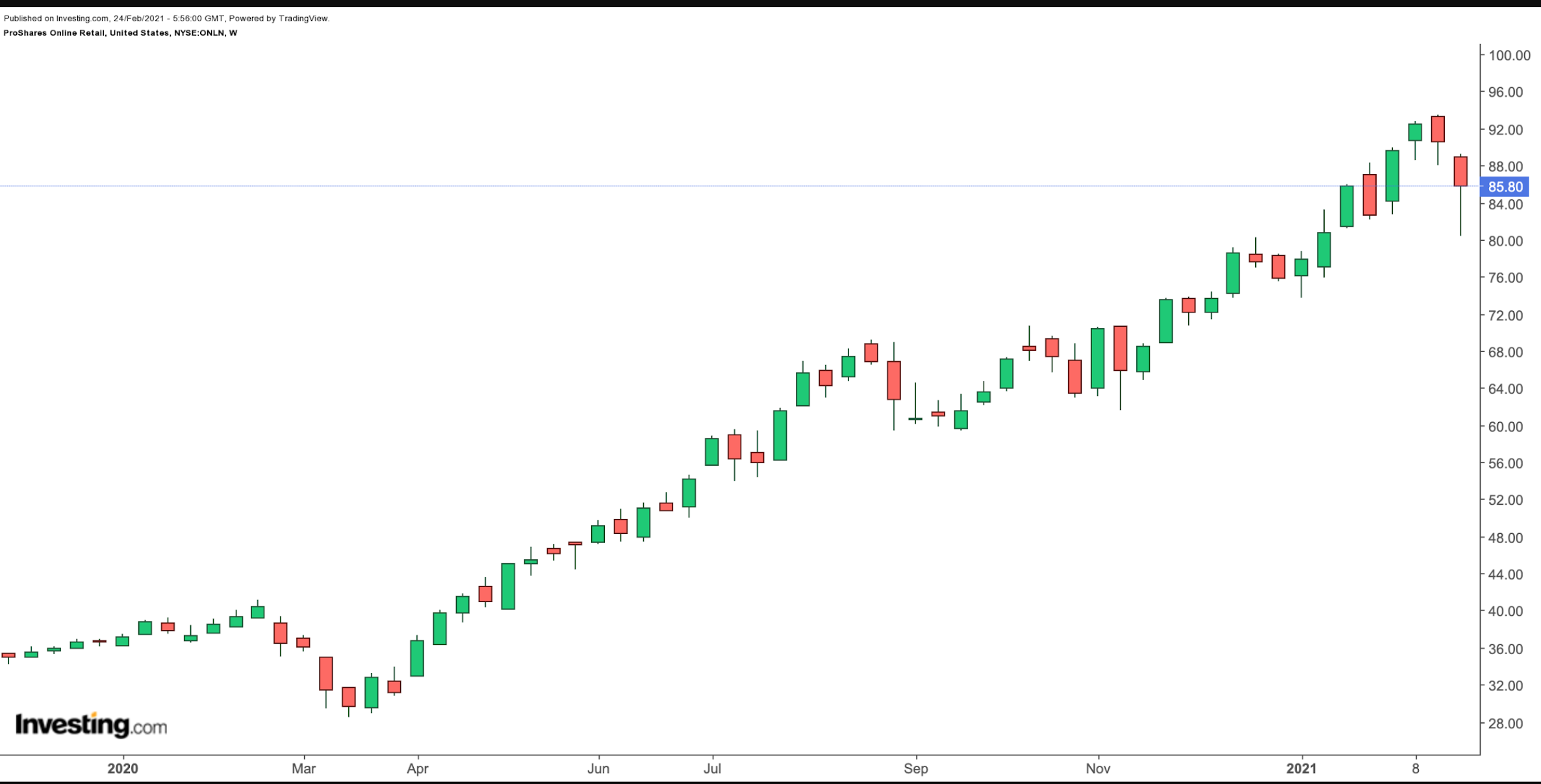Tech juggernaut Amazon (NASDAQ:AMZN) went public in May 1997 at only $18. Now, it has a market cap of about $1.56 trillion and trades around $3,100 per share.

The Seattle-based e-commerce giant announced Q4 results on Feb. 2. Net sales increased 44% year-over-year (YoY) to $125.6 billion. Net earnings came in at $7.2 billion, up 121% YoY. Diluted EPS was $14.09, an increase of 118% YoY increase. Free cash flow also grew by 20% YoY and reached $31.0 billion.
The company also announced that later in 2021, chief executive officer (CEO) Jeff Bezos will transition to executive chair and Andy Jassy will become CEO at that time. Jassy is currently heading Amazon Web Services, whose operations have been providing tailwinds for the company's growth in revenues.
Amazon stock’s forward P/E and P/S ratios are 62.11 and 4.20, respectively, a frothy valuation by historical standards. Over the past 12 months, the shares returned about 45% and hit a record high in September 2020. However, year-to-date (YTD), the stock is flat.
Thus, many market participants wonder if now could be an opportune time to buy into the share price. For most retail investors, however, Amazon shares might still be too expensive to buy. Therefore, today, we introduce two exchange-traded funds (ETFs) with AMZN as a leading holding. These funds might provide an alternative way to invest in the shares.
1. Vanguard Consumer Discretionary Index Fund ETF Shares
Current Price: $289.34
52 Week Range: $118.99 - $300.59
Dividend Yield: 1.62%
Expense Ratio: 0.1% per year
The Vanguard Consumer Discretionary Index Fund ETF Shares (NYSE:VCR) invests in consumer discretionary stocks, which tend to be highly sensitive to economic cycles. On the manufacturing side, the sectors include automotive, household durable goods, apparel and leisure equipment. Services typically include lodging and leisure (such as hotels or restaurants), travel and consumer retailing, especially luxury goods.

VCR, which has 299 holdings, tracks the Consumer Discretionary Spliced Index. The fund started trading in January 2004, and assets under management are $5.7 billion.
In terms of sector allocation, Internet & Direct Marketing Retail heads the fund with 27.5%, followed by automobile manufacturers (14.0%), restaurants (9.0%), home improvement retail (8.8%) and others. The top 10 stocks comprise 54.8% of the fund. Amazon, the largest e-commerce company in the world, and electric vehicle (EV) darling Tesla (NASDAQ:TSLA) have the highest weighting, with 20.8% and 11.50%, respectively. This means that moves in these two names would have a substantial effect on the fund. Other leading businesses in the ETF are Home Depot (NYSE:HD), Nike (NYSE:NKE), McDonald's (NYSE:MCD) and Lowe's (NYSE:LOW).
In the past 12 months, VCR is up more than 40% and hit a record high in February. So far in 2021, it has returned 1%. A potential decline toward $275 or below would improve the margin of safety.
2. Proshares Online Retail ETF
Current Price: $85.80
52 Week Range: $28.50 - $93.45
Dividend Yield: 2.60%
Expense Ratio: 0.58% per year
The ProShares Online Retail (NYSE:ONLN) provides access to retailers that principally sell online or through other non-store channels. In 2021, global retail e-commerce sales are expected to reach almost $5 billion.

ONLN, which has 26 holdings, tracks the returns of the Proshares Online Retail Index. The fund started trading in July 2018 and currently has close to $900 million under management.
About 70% of the fund is held in its top 10 stocks. Exactly 22.62% of the assets are invested in Amazon. Other top names in the roster are Alibaba (NYSE:BABA), Magnite (NASDAQ:MGNI), Chewy (NYSE:CHWY) and Etsy (NASDAQ:ETSY).
Over the past year, ONLN returned about 114% and hit an all-time high in February. YTD, it is up close to 15%. In the case of short-term profit-taking in the names that make up the fund, buy-and hold investors could regard $82.5 or below as a better entry point.
